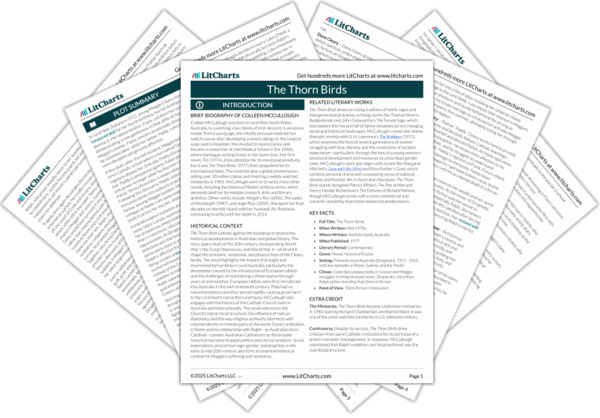Frank helping with the dishes breaks one of the household’s rules—domestic labor isn’t something the males in the family do. He wants to share the burden, and he uses the moment to speak openly about the future. Fiona pushes back, not out of cruelty, but because she sees how often hope leads to disappointment. She values Frank’s help, but she stays realistic. This is especially bad news for Meggie, who Fiona values less than her sons. If Fiona does not want Frank to dream of a better life, then what does that say about Meggie’s future?
